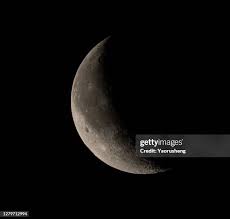Rekindling Our Fascination with the Moon
In recent years, the moon has made a remarkable comeback into the spotlight. From ambitious space missions aimed at establishing a permanent human presence to scientific studies exploring its potential for resource extraction, the celestial body has become a focal point in discussions about humanity’s future in space.
The New Era of Lunar Exploration
The announcement of NASA’s Artemis program has reignited excitement about lunar exploration. This project aims to land ‘the first woman and the next man’ on the moon by 2025, with plans to establish a sustainable presence by the end of the decade. As NASA Administrator Bill Nelson noted, “We’re going back to the moon not only to explore but to stay; we’re laying the groundwork for human missions to Mars.” This blend of science and ambition reflects a renewed commitment to the moon as a launchpad for future endeavors.
Scientific Insights into Our Cosmic Neighbour
Aside from its potential for human settlement, the moon offers researchers a unique opportunity to study the formation of our solar system. Recent studies suggest that lunar samples brought back from the Apollo missions are still providing groundbreaking insights. For instance, scientists have found evidence of ancient volcanic activity that challenges previously held notions about the moon’s geological history.
As lunar exploration progresses, automated rovers and landers have become essential tools in uncovering the moon’s secrets. Preliminary results from missions such as China’s Chang’e-5, which successfully brought back lunar soil samples last year, indicate the presence of water ice—crucial for supporting human life and possibly as a source of fuel for space travel.
Public Sentiment and Social Media Buzz
Public interest in lunar missions has surged alongside these scientific advancements. A recent survey revealed that 75% of Canadians support increased funding for space exploration, with many believing that our endeavors on the moon will lead to advancements in technology and science that benefit life on Earth. On social media, hashtags like #MoonMission and #LunarLiving are trending, reflecting a collective excitement about humanity’s return to the moon.
The Implications of Lunar Exploration
As nations ramp up their lunar programs, the implications for international relations are significant. The moon’s resources, including water, rare minerals, and potential energy sources, have sparked conversations regarding ownership and mining rights. As countries like China, Russia, and India join the fray, it’s essential to consider frameworks for cooperation that prioritize peace and sustainability.
Furthermore, what does it mean for humanity if the moon becomes a base for future exploration? Experts warn that the race for the moon could echo the competitive dynamics of the space race in the 1960s, potentially leading to conflicts rather than collaboration.
A Future Written in the Stars
The moon, once a distant beacon in our night sky, is more than just a rock orbiting our planet; it represents our innate desire to explore, to discover, and to push the frontiers of human habitation. As we stand on the verge of journeying deeper into space, one thing is clear: our relationship with the moon will continue to shape the narrative of human history for generations to come. Instead of mere spectators of our cosmic neighbor, we are becoming active participants in its story.
